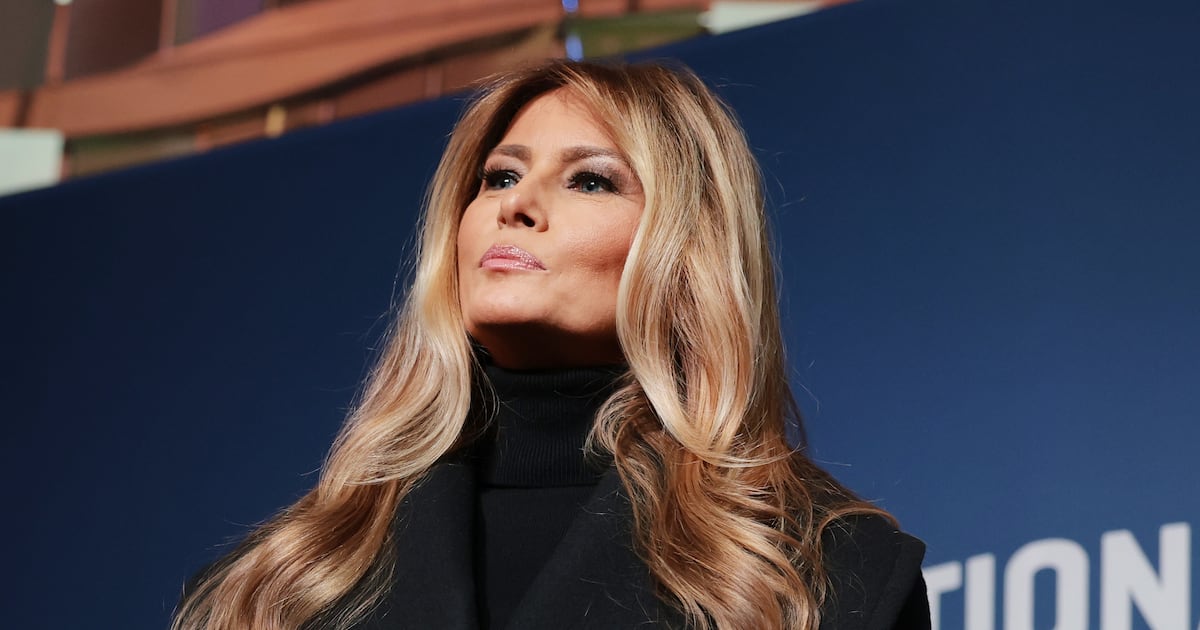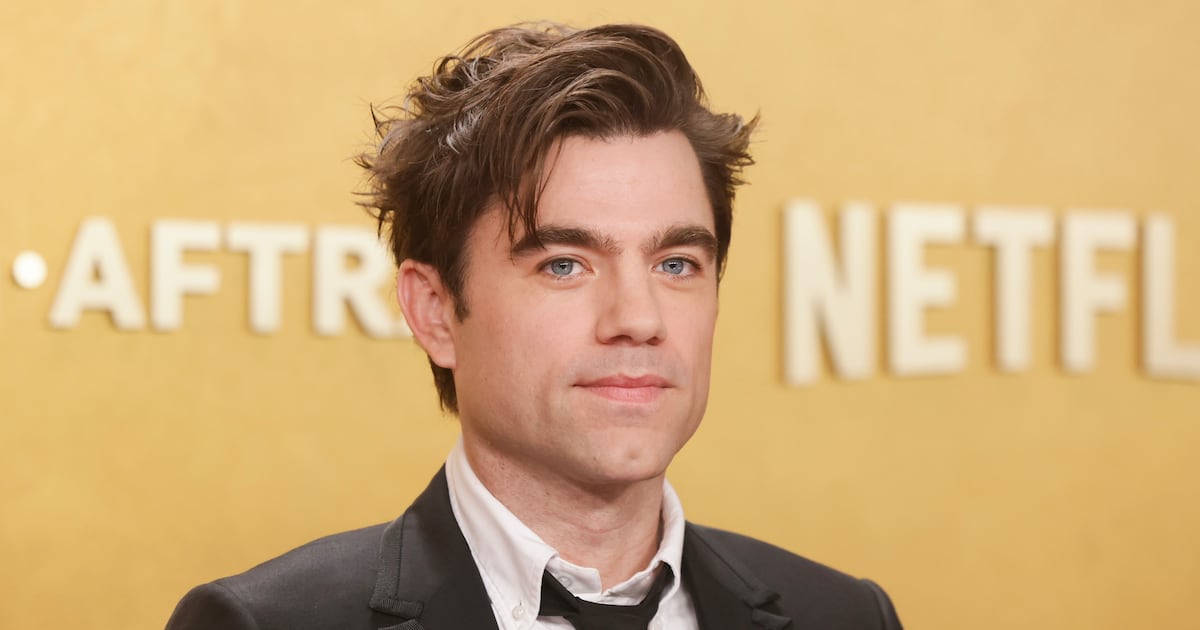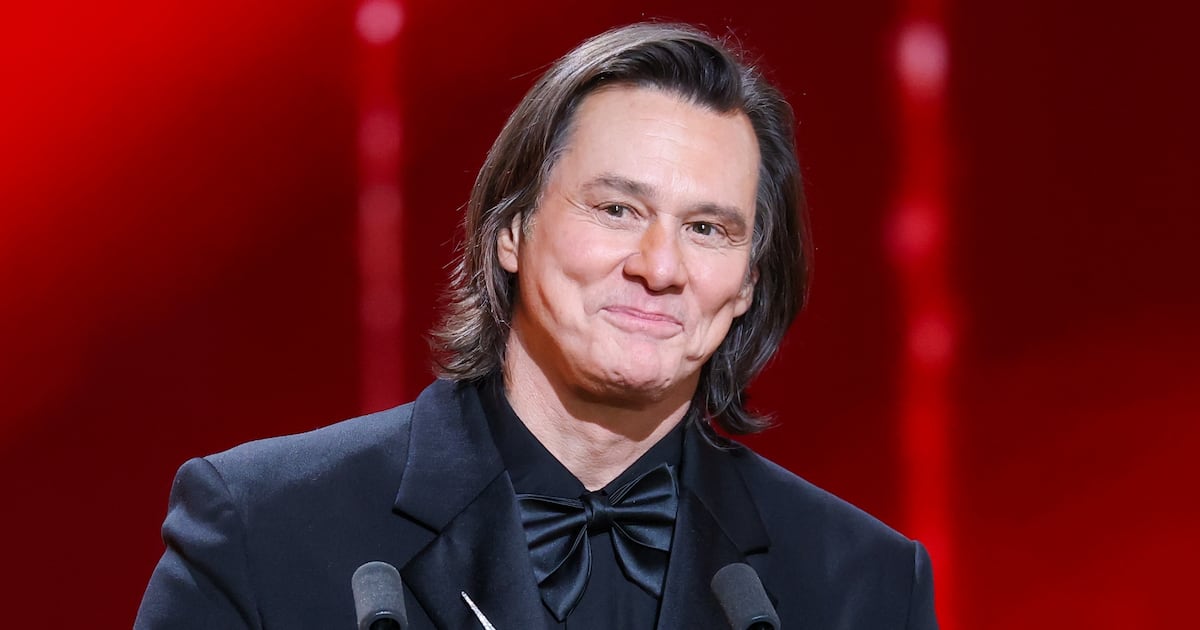Going into this year’s Oscars, I had a bad feeling that the Academy voters would give Best Actor to Brendan Fraser. Fraser was nominated for The Whale, a movie that many critics have characterized as a deeply harmful portrayal of a fat person. When he did end up winning the award, the whole room stood up to congratulate him. As I watched at home, I looked around at the audience on-screen and saw a sea of thin people—who likely have no idea what it’s like to be fat—vigorously applauding a non-fat actor for portraying the thing that frightens and disgusts so many people the most in this world: a fat person.
It apparently doesn’t matter how many fat people tell Hollywood how degrading it is to put thin actors in fat suits. The industry simply cannot and will never be able to relate—because being thin is part of the job description for actors and other image-driven celebrities. The Oscars were held in a room in which a not-insignificant number of the attendees are likely taking Ozempic or subscribe to some “wellness” trend that’s really just fad dieting in disguise, in order to shed pounds they don’t actually need to lose.
The point of this endless weight-loss endeavor is not health—thumbing through 126 photos from the Vanity Fair Oscars Party, the vast majority of celebrities are shockingly thin, which also could be said of nearly every Oscars presenter on Sunday night. It was clear to me that the image Hollywood continues to project is a fantasy that bears no resemblance to the contemporary United States, where the average woman wears a size 14-16.
So of course this is the same voting body that gave Fraser the industry’s most important award, all for putting on a fat suit and portraying a pitiful caricature of a fat person.
I’ll be upfront in saying that I haven’t actually seen The Whale, and I don’t intend to. I made this decision in the fall, when reviews started coming out after its film festival premieres in Venice and Toronto. My decision to skip it wasn’t only about Fraser donning a fat suit in order to portray the dying, divorced, 600-pound English teacher Charlie. It was also that it was written and directed by two thin men—the original playwright and screenwriter Samuel D. Hunter, who has said he "self-medicated with food” as a young man (which is not the same as identifying as fat), and the thin director Darren Aronofsky.
Further, reviews discussed graphic scenes of binge eating that sounded triggering to me—not because I have experience with an eating disorder, but because Charlie apparently wanted to eat himself to death.
From what I gleaned early on, The Whale fell for the trappings of classic trauma porn: a self-hating fat person punishing himself over and over. As someone who has worked hard to counter my own anti-fat biases and embraced the word “fat” to describe myself, I wanted no part of it.
Roxane Gay’s review of the film last December only validated my decision. She wrote that she cried during most of the film, not out of empathy for Fraser’s character, but because it was painful to witness “how utterly careless the writing and direction were. It was crystal clear that Mr. Hunter and Mr. Aronofsky considered fatness to be the ultimate human failure, something despicable, to be avoided at all costs.” Gay also correctly predicted that Fraser would be lauded as “brave” by his peers “for being willing to embody so many people’s worst fears.”
I saw a lot of people tweeting during the ceremony that, although they may have wished it were for a different, less controversial role, they were happy for Fraser’s win. I have nothing against the actor, but I couldn’t disagree more: That Fraser embodied the so-called “morbidly obese” Charlie is precisely the point of the win. It matters that Fraser won the Oscar for a role that Lindy West, the fat-positive author of the memoir Shrill (which was made into a groundbreaking Hulu show a few years ago), recently described as “a fantasy of fat squalor, a confirmation that we ‘do this’ to ourselves.”
Three years ago, I published a feature in the LA Times suggesting a version of the Bechdel test for fat representation on TV. It was not enough to write fat people into scripts and cast fat actors in prominent roles, I argued; it was important that their story lines not revolve around their weight or desire to not be fat. I naively assumed that fat suits worn by thin actors—epitomized by the “Fat Monica” gag on Friends and Gwyneth Paltrow’s character in Shallow Hal—had gone out of fashion, lauding shows featuring fat women as protagonists, such as Shrill and Orange Is the New Black.
In 2023, I no longer feel so optimistic about the industry’s progress on the issue of diverse body representation. I’ve seen numerous examples of thin actors donning fat suits in recent years, mostly to depict real-life fat people. These include Sarah Paulson (as Linda Tripp), Viola Davis (Ma Rainey), Renée Zellweger (Pam Hupp), and Tom Hanks (Colonel Tom Parker). Earlier this year, photos were released revealing that action star and martial artist Scott Adkins (an incredibly fit man) would be portraying a fat character in John Wick: Chapter 4.
As one fat activist on Twitter noted recently, one key difference between characters like “Fat Monica” from decades past and the current trends in Hollywood is that fat suits were played for laughs back then. Now, A-list dramatic actors don fat suits to garner critical acclaim and win precisely the type of awards Fraser just took home. His win sends the message to his peers that this trend is not merely acceptable, but good for your career. All of the media surrounding Fraser’s role has framed it as a huge comeback, after all.

Brendan Fraser in The Whale.
A24This celebratory narrative and resurgence of fat suits not only takes work away from fat actors, but it treats fat bodies like a prop—hence, why The Whale also won Best Makeup and Hairstyling this year. Even more importantly, awarding Fraser for a role that misrepresents fat people as miserable and disgusting—let’s just say it, as freak shows—only amplifies the pervasive anti-fat bias that circulates in our society.
I felt a similar phenomenon at play in last December’s Netflix film Matilda the Musical, which was nominated for Outstanding British Film at last month’s BAFTA awards. I went into the movie expecting to be angered by the fat suit Emma Thompson wears as Miss Trunchbull, a bizarre accoutrement that seemed to augment her breasts much more than any other part of her body. But what I found profoundly disheartening was that one of the child actors (Charlie Hodson-Prior) also donned a prosthetic belly to portray the character of Bruce Bogtrotter.
Not only was a fat child actor not cast in the part (in contrast with the 1996 film version of Matilda), with the producers opting to strap on a fairly obvious fake belly to Hodson, but there’s a scene in which he eats an entire, three-tier chocolate cake in order to get the best of the villain, Miss Trunchbull (Thompson)—it is, like that of Charlie in The Whale, a freak-like portrayal of a fat person. Apparently the cake scene comes from the original Roald Dahl novel, but adaptive choices are made by screenwriters all the time in order to make older stories more inclusive and/or avoid reinforcing harmful stereotypes.
Like Matilda the Musical, The Whale is doubly harmful, both in its casting (with the decision to use a fat suit) and in the story it tells about fat people. The trend of thin actors donning fat suits in exchange for awards nominations—Brendan Fraser and Viola Davis for Oscars, and Sarah Paulson for an Emmy—dehumanizes fat people by reducing us to our body size and magnifying this one aspect of us.
But even more than that, Hollywood, a place where thinness is valued above all else, still seems incapable of creating fat characters that don’t perpetuate pernicious myths about our bodies. As fat activist Aubrey Gordon writes in her new book, which debunks myths about fat people, “Thinness isn’t just a matter of health or beauty or happiness. It is a cultural structure of power and dominance.”
To reward stories like The Whale and the non-fat actors who star in them while wearing fat suits is to give their thin creators carte blanche to continue distorting the reality of our lives, painting us as irrevocably broken or one-dimensional. When we see fat people binge eating on screen, as in The Whale, Matilda the Musical, or something similarly well-regarded like Precious, fatphobic stereotypes—such as the idea that all fat people are unhealthy, don’t exercise, and are obsessed with or have an unhealthy relationship with food—gain traction and staying power. And as Gordon documents in her book, anti-fat bias is far more harmful to fat people than being fat is.
The solution seems obvious to me: Fat people need the power and opportunity to create our own stories, grounded in the experience of living in a fat body, and the ability to cast actors that reflect our body diversity. We don’t need any more trauma porn written or acted by thin people, projecting their worst fears about looking like us onto the page and the screen, and then patting themselves on the back for deigning to “represent” us.
Simply put, The Whale—and Fraser’s win—is a travesty for fat people.







